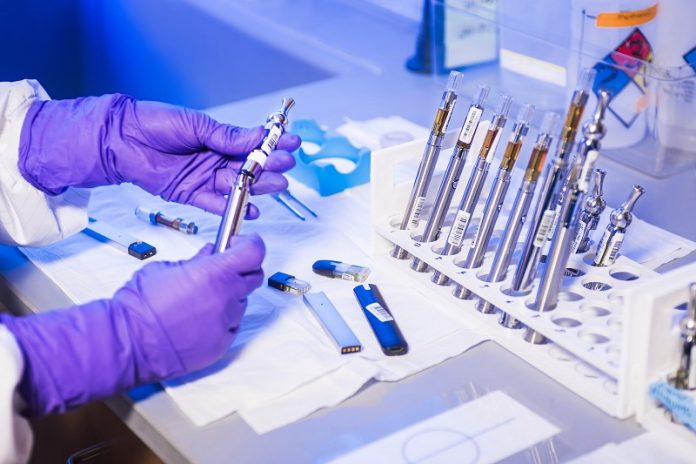
In a study from Tufts University, scientists found a vaping habit could end up leading to a tarnished smile, and more frequent visits to the dentist.
They found patients who said they used vaping devices were more likely to have a higher risk of developing cavities.
With CDC surveys reporting that 9.1 million American adults—and 2 million teenagers—use tobacco-based vaping products, that means a lot of vulnerable teeth.
The findings of this study on the association between vaping and the risk of caries—the dental term for cavities—serve as an alert that this once seemingly harmless habit may be very detrimental.
Over the last few years, public awareness has increased about the dangers of vaping to systemic health—particularly after the use of vaping devices was tied to lung disease.
In the current study, the team focused on the association of vaping and e-cigarettes with the increased risk of getting cavities.
Their colleagues analyzed data from more than 13,000 patients older than 16 who were treated at Tufts dental clinics from 2019-2022.
While the vast majority of the patients said they did not use vapes, there was a big difference in dental caries risk levels between the e-cigarette/vaping group and the control group.
Some 79% of the vaping patients were categorized as having high-caries risk, compared to just about 60% of the control group.
The vaping patients were not asked whether they used devices that contained nicotine or THC, although nicotine is more common.
One reason why e-cigarette use could contribute to a high risk of cavities is the sugary content and viscosity of vaping liquid, which when aerosolized and then inhaled through the mouth, sticks to the teeth.
Vaping aerosols has been shown to change the oral microbiome making it more hospitable to decay-causing bacteria.
It’s also been observed that vaping seems to encourage decay in areas where it usually doesn’t occur—such as the bottom edges of front teeth.
The researchers recommend that dentists should routinely ask about e-cigarette use as part of a patient’s medical history.
If you care about dental health, please read studies about the best food for tooth and gum health, and how to prevent and reverse gum disease.
For more information about dental health, please see recent studies about diabetes and gum disease, and results showing this diet could help treat gum disease.
The study was conducted by Karina Irusa et al and published in The Journal of the American Dental Association.
Copyright © 2022 Knowridge Science Report. All rights reserved.



